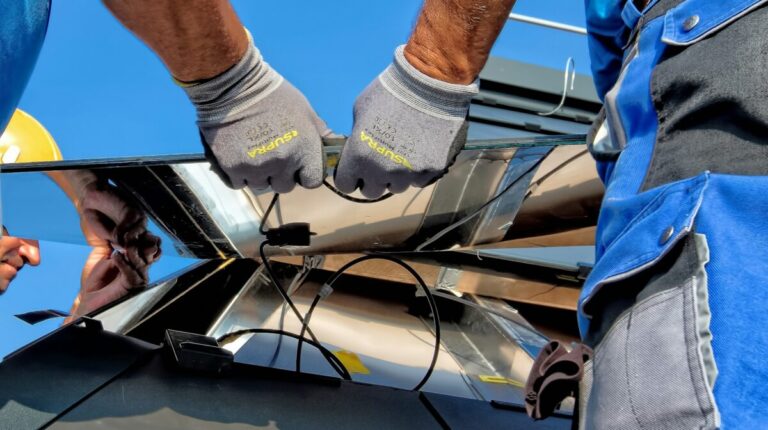The European Solar Manufacturing Council (ESMC) has expressed support for the inclusion of non-price criteria in solar panel auctions, as set out in the EU Net Zero Industry Act. The council’s recommendation document also calls on member states to adopt the law as soon as possible and highlights cybersecurity and data security concerns regarding Chinese inverters.
The ESMC has published a recommendation document on the implementation of the European Union’s Net Zero Industry Act (NZIA), which the European Parliament drafted approved in April.
In the newspaper, “Implementation of the NZIA proposal for sustainability, social and resilience criteria”, the ESMC welcomed the inclusion of non-price criteria in solar panel auctions as set out in the law.
The council said Europe’s dependence on solar energy on a single country “makes makes us very vulnerable and endangers both energy security and the entire green transition.” It added that the entire supply chain and manufacturing ecosystem for solar PV products “should be supported to Europe as much as possible.”
To strengthen the European sustainable solar energy supply chain, the EMSC document proposes a carbon footprint mechanism that could be used as an award or eligibility criterion, as well as the exclusion of countries with more than 50% of the market share from some public tenders and tenders. a ban on products from countries and regions where forced labor occurs.
“With adequate criteria for resilience, sustainability and workers’ rights, auctions have the potential to serve as a crucial tool in bringing solar energy production back to Europe,” says ESMC’s Vincent Delporte, also head of public affairs at Holosolis. “We hope that this document can serve as a valuable resource for anyone interested in criteria for auctioning sustainably European-made solar panels in line with the objectives of the NZIA.”
The ESMC said the NZIA should be adopted “as soon as possible”, before the European Commission’s October 2025 deadline, to give the industry “a more predictable future and vision and increase the scope for business opportunities”. The council also calls for a regular dialogue between manufacturers, policymakers and member states – in line with the agreement in the European Solar Charter – ensuring that regulation and investment move forward together.
Elsewhere in the paper, the ESMC has recommended that PV modules be given unique barcodes, which can be displayed in EU-wide databases or in individual EU country databases, and supports the implementation of a PV passport. The council also says it anticipates that “more work needs to be done in the area of cyber and data security.”
Noting that around 80% of all new inverters currently installed in the EU are now made in China, the paper said that “the Chinese state, in a polarized situation, could force Chinese inverter manufacturers to provide the data on European PV systems .” It added that in a worst-case scenario, a conflict with China could see Chinese inverter manufacturers orchestrate power outages in Europe, requiring a total restart of the entire power grid, which could take up to a week.
ESMC said the problem can be solved by purchasing European-made inverters instead. In August 2023, the council questionnaire of 15 European PV manufacturers found that solar panel production fell from 9 GW to 1 GW in one year.
This content is copyrighted and may not be reused. If you would like to collaborate with us and reuse some of our content, please contact: editors@pv-magazine.com.


